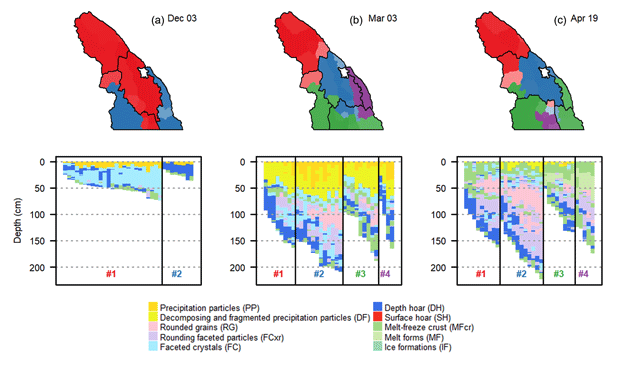
Project Overview
As numerical snowpack models became more widely used in avalanche forecasting, forecasters needed better ways to interpret the large volumes of complex model output. Clustering can group snow profiles based on similarity and is a powerful technique to identify common snowpack structures. Initial trials showed that clustering could highlight areas with similar avalanche problems and help visualize how snowpack conditions changed across forecast regions.
This approach gained momentum when Avalanche Canada introduced flexible forecasting, allowing forecasters to draw region boundaries each day based on current conditions. We applied statistical clustering to model output to generate potential region boundaries. Forecasters found these prototypes helpful, prompting a series of refinements to meet operational needs. These included incorporating geospatial proximity, using fuzzy clustering techniques to reflect uncertainty in boundaries, and implementing temporal criteria that track evolving patterns over time.
Later work introduced clustering based on derived avalanche problem metrics. This improved computation speed by focusing on hazard characteristics rather than detailed snowpack layering. The methods were tested over multiple seasons and have since been integrated into daily forecast workflows at https://snowpack.avalanche.ca.
Involved Researchers
- Simon Horton
- Florian Herla
- Pascal Haegeli
- Patrick Mair (Department of Psychology, Harvard University, Cambridge, MA, USA)
Partner Organizations
Project Funding
Relevant Publications

Clustering simulated snow profiles to form avalanche forecast regions

A clustering technique to identify spatial patterns in snow cover model output


